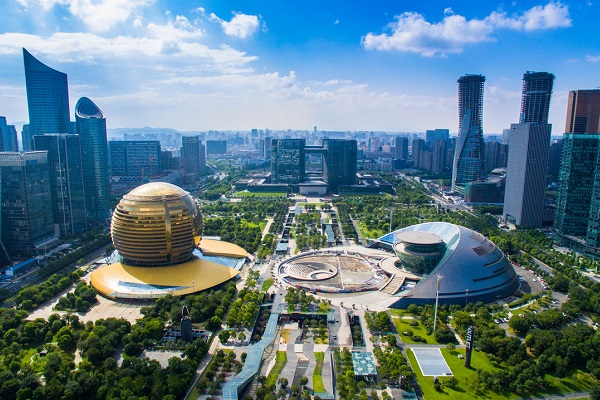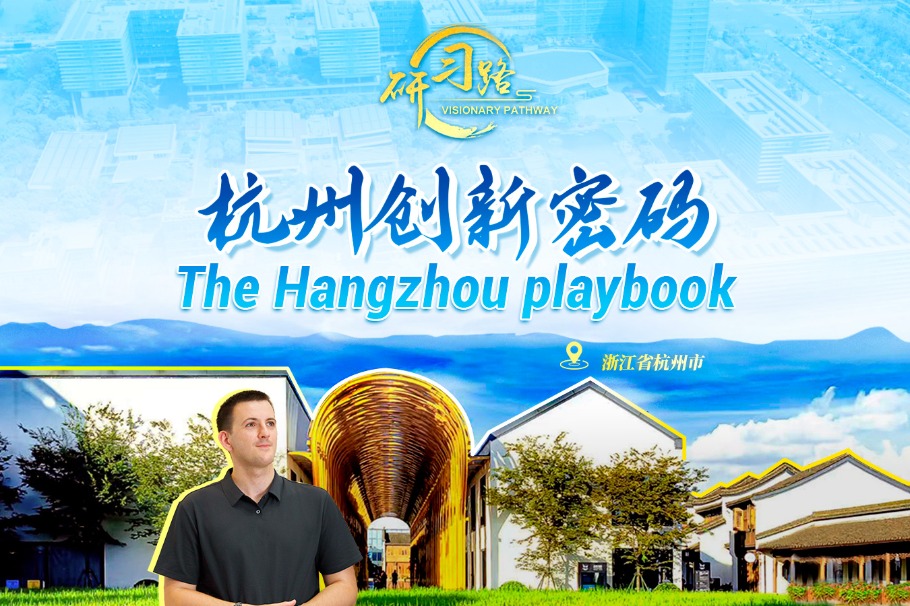China and the G20: What have been Beijing's proposals at the summits?
Under the theme of "One Earth, One Family, One Future," the 18th summit of the Group of 20 (G20) will take place over the weekend. Expectations are running high for the main forum of international economic cooperation to give full play to its role.
Since the inaugural G20 Summit in 2008, China has played a constructive role, attaching great importance to G20 cooperation and contributing ideas for and solutions to better global economic governance and sustainable development.
Addressing the summits over the past decade, Chinese President Xi Jinping has highlighted the importance of partnership, common development, sustainable growth and openness, and urged concerted efforts in building a community with a shared future for mankind.
Partnership
Created in 1999, the G20 is made up of 19 countries – Argentina, Australia, Brazil, Canada, China, France, Germany, India, Indonesia, Italy, Japan, Mexico, Russia, Saudi Arabia, South Africa, South Korea, Türkiye, the United Kingdom and the United States – and the European Union, representing major developed and emerging economies of the world.
The group is home to almost two-thirds of the world's population and represents about 85 percent of global gross domestic product (GDP) and 75 percent of international trade, according to the Organization for Economic Cooperation and Development.
At a time when the world economy is under increasing downward pressure and global sustainable development is facing more difficulties, the G20, given its size and strategic importance, is expected to strengthen partnership and work together to address the challenges.
"As the saying goes, if you want to walk fast, walk alone; if you want to walk far, walk together," Xi said at the 9th G20 Summit in Brisbane, Australia in November 2014.
The members of the G20 must stay as good friends and good partners, he said, so as to enable the G20 to walk steady and far to truly help stabilize the world economy, drive global growth and enhance global economic governance.
When the G20 Summit was held in east China's Hangzhou in September 2016, Xi reiterated the importance of partnership in a keynote speech at the Business 20 Summit.
"Partnership is the most valuable asset of the G20 and the choice of all countries as they rise up together to global challenges," he said.
Development
When he addressed the 13th G20 Summit in Buenos Aires, Argentina in November 2018, ten years since the global financial crisis and the first G20 Summit, the Chinese president made it clear that development holds the key to problems facing the world.
Xi proposed the Global Development Initiative (GDI) in 2021. So far, more than 100 countries and international organizations have supported the GDI, and nearly 70 countries have joined the UN-based Group of Friends of the GDI, according to the Chinese Foreign Ministry.
"The GDI that I proposed is aimed at meeting the long-term objective and immediate needs of common development of the world, fostering international consensus on promoting development, cultivating new drivers for global development, and facilitating common development and progress of all countries," said Xi at the 17th G20 Summit in Bali, Indonesia last year.
Noting that economic globalization was encountering headwinds, and the world economy was at risk of recession, he highlighted the difficulties facing developing countries.
"Everyone is having a hard time, but developing countries are bearing the brunt," said Xi. He added that China supports the African Union in joining the G20.
Growth
The Chinese president called for efforts to explore new ways to achieve growth and pay more attention to the quality and efficiency of growth at the 2014 G20 Summit.
"In particular, we should carry out structural reform in fiscal policies, taxation, finance, investment, competition, trade and employment, and combine macroeconomic policies with social policies in order to generate momentum for wealth creation, release the power of the market, and push for a transition from cyclical recovery to sustainable growth," he said.
At the 10th G20 Summit in Antalya, Türkiye in November 2015, Xi said the members of the G20 are all major economies, and should naturally carry greater responsibilities for global growth.
In a speech titled "Innovative Growth that Benefits All," he stressed that the G20 should strengthen macroeconomic policy communication and coordination, promote reform and innovation and build an open world economy.
Openness
When he first attended the G20 Summit in St. Petersburg, Russia in September 2013, Xi expressed opposition to trade protectionism and support for an open world economy.
"Only by opening the window can the air circulate, and can fresh air come in," he said, warning that protectionism and abuse of trade remedy measures will be a double-edged sword.
Noting that the G20 is committed to creating a free and open global trade environment and promoting liberalization and facilitation of the international trade, he urged the members to properly handle trade frictions through dialogue and consultations.
"Some developed countries also need to cancel the unreasonable restrictions on exports of high-tech products," he said.
A community with a shared future for mankind
The term building a community with a shared future for mankind has been repeatedly highlighted by the Chinese president during his speeches at G20 summits.
"In the era of economic globalization, there is no island completely cut off from the rest of the world," Xi said at the Hangzhou Summit.
"As members of the global village, we need to cultivate the awareness of a community with a shared future for mankind," he urged.
In the following year, at the G20 Hamburg Summit in July 2017, Xi reiterated the importance of building bridges of cooperation to advance shared prosperity.
"A German saying goes to the effect that, 'Those who work alone, add; those who work together, multiply,'" he said.
"In this spirit, let us work together to promote interconnected growth for shared prosperity and build toward a global community with a shared future."
-
Visionary Pathway - Hangzhou Playbook
July 15, 2025



